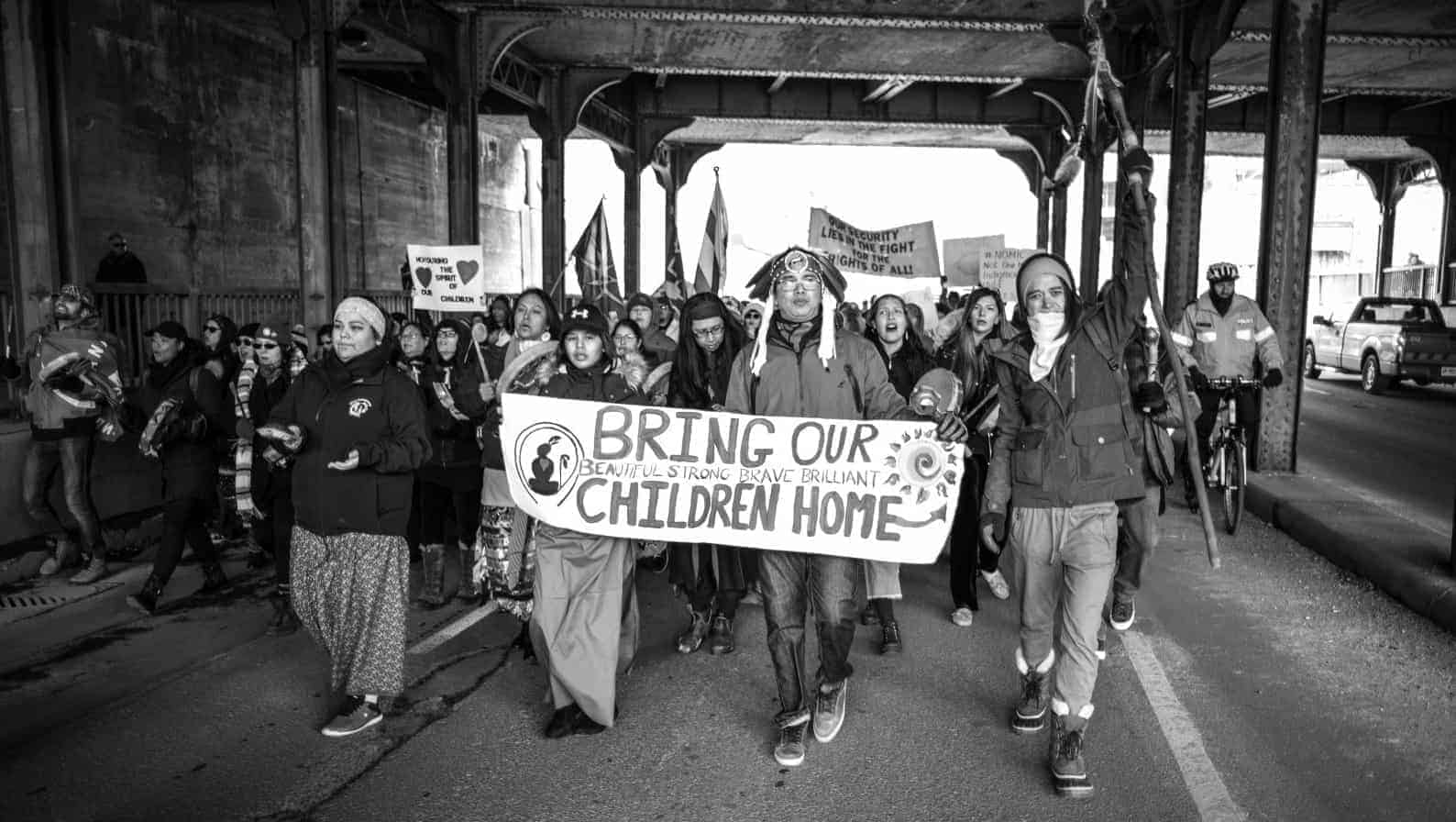- About
- Research
-
-
- Special Reports & Features
- The Rematriation of Indigenous Place Names
- Braiding Accountability: A Ten-Year Review of the TRC’s Healthcare Calls to Action
- Buried Burdens: The True Costs of Liquified Natural Gas (LNG) Ownership
- Pretendians and Publications: The Problem and Solutions to Redface Research
- Pinasunniq: Reflections on a Northern Indigenous Economy
- From Risk to Resilience: Indigenous Alternatives to Climate Risk Assessment in Canada
- Twenty-Five Years of Gladue: Indigenous ‘Over-Incarceration’ & the Failure of the Criminal Justice System on the Grand River
- Calls to Action Accountability: A 2023 Status Update on Reconciliation
- View all reports.
- Special Reports & Features
-
-
- Yellowhead School
-
- The Treaty Map
- LIBRARY
- Submissions
- Donate
In the last Parliament, the Federal Government passed legislation to recognize September 30 as a statutory holiday to observe and learn. This was a recommendation from the Truth and Reconciliation Commission. What is the state of the other TRC Calls?
Calls to Action Accountability: A 2020 Update on Reconciliation
Following up from their 2019 TRC check-in, Eva Jewell and Ian Mosby once again provided an update on Canada’s progress on the Calls to Action. According to their analysis, not one Call to Action was completed in 2020, despite the fact that progress could have alleviated issues that Indigenous communities were facing (and continue to face) due to COVID-19. The impact of this regression in progress and lack of substantive change revealed in this report only becomes more stark when we look ahead to the ongoing discovery of thousands of children’s bodies on Indian Residential School grounds starting in June 2021.
How have recent Liberal Governments approached Indigenous policy outside the TRC Calls to Action?
Canada’s Emerging Rights Framework: A Critical Analysis
While written in 2018, this report still remains relevant. Our analysis finds that the Rights Framework expresses a clear and coherent set of goals, which revolve around domesticating Indigenous self-determination within Canadian Confederation. These goals have been ordered into legislation and policy in a manner that guides First Nations towards a narrow model of “self-government” outside of the Indian Act.
But reconciliation doesn’t necessarily have to centre governments. What are Indigenous visions of the future of the relationship?
The lens through which Yellowhead supports communities is restitution. We believe that Canadian governments and communities are obligated to return land, resources, and, yes, cash. This is the foundation of any renewed and fair relationship, so we shape much of our research around this concept. But in many ways, restitution means the revitalization of vibrant Indigenous life, too.
Land Back: A Yellowhead Institute Red Paper
The project of land back is about reclaiming Indigenous jurisdiction: breathing life into rights and responsibilities. This Red Paper is about how Canada dispossesses Indigenous peoples from the land, and in turn, what communities are doing to get it back.
Cash Back: A Yellowhead Institute Red Paper
Picking up from Land Back, the first Red Paper by Yellowhead about the project of land reclamation, Cash Back looks at how the dispossession of Indigenous lands nearly destroyed Indigenous economic livelihoods. Cash Back is about restitution from the perspective of stolen wealth. What we have tried to show here is a glimpse of how Canada got its economy through theft, how colonialism has been reframed as fiscal policy, and how Indigenous livelihoods can be protected and thrive even in the face of state deprivations and violence.
Culture of Exploitation: “Reconciliation” and the Institutions of Canadian Art
This Special Report considers themes in the historic relationship between Indigenous people in the Institutions of Canadian art and culture to contextual a series of interviews conducted with cultural workers during the COVID-19 pandemic, and which reveal a renewed exploitation of their labour and their works. Finally, the Report offers 15 Standards of Achievement that can serve as a guide for institutions and governments to begin reversing this exploitation and renewing the relationship.
While you’ve found your way here, we’ve curated some more analysis and writing we feel is important to reflect on today, but also tomorrow and beyond.
BRIEF | FEBRUARY 4, 2020
The Failure of Federal Indigenous Healthcare Policy in Canada by Mike Gouldhawke
BRIEF | AUGUST 5, 2020
A How-to Guide for the Settler Colonial Present: From Canada to Palestine to Kashmir by Azeezah Kanji
BRIEF | JUNE 25, 2020
Carceral Redlining: White Supremacy is a Weapon of Mass Incarceration for Indigenous and Black Peoples in Canada by Rai Reece
BRIEF | JUNE 10, 2020
Federal Child Welfare and Indigenous Childhood Sexual Violence by Fallon Simard
BRIEF | March 31, 2020
COVID-19 and Inuit Nunangat: Research, Responsibility & Infrastructure Inequality by Jessica Penney and Patricia Johnson-Castle
BRIEF | FEBRUARY 27, 2020
Banking while Brown: Indigenous People and Structural Racism in Canada by Nikki Sanchez

